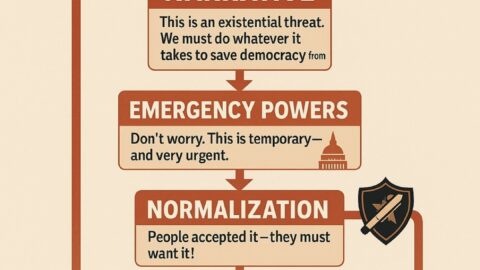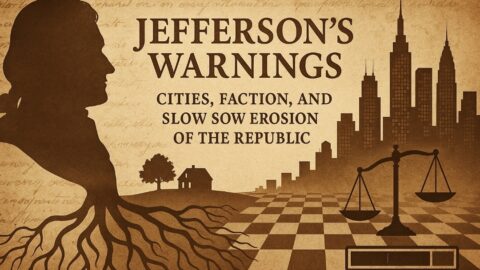“It is the preoccupation with possessions, more than anything else, that prevents us from living freely and nobly.” — Bertrand Russell
This profound statement by Bertrand Russell, the British philosopher, mathematician, and social critic, critiques humanity’s excessive attachment to material possessions and the way this attachment inhibits true freedom and noble living. Russell suggests that the relentless pursuit of material wealth and possessions creates spiritual, emotional, and intellectual constraints, preventing people from achieving meaningful and fulfilling lives.
Let’s delve into this quote through philosophical, psychological, emotional, social, and practical lenses to fully understand its implications.
Philosophical Perspective
A. Materialism vs. Freedom
- Russell challenges the materialistic worldview, where success and happiness are measured by wealth, possessions, and external status symbols rather than inner peace, wisdom, or contribution to humanity.
- True freedom, according to Russell, is the ability to think, act, and live authentically without being bound by desires for accumulation or fears of loss.
Example:
- A person obsessed with acquiring luxury items may find their choices dictated by the need to maintain their lifestyle, reducing their ability to make independent or meaningful decisions.
B. Noble Living and Higher Purpose
- To live nobly means to pursue virtue, wisdom, and moral excellence rather than shallow goals tied to wealth or material possessions.
- Noble living often involves selflessness, intellectual curiosity, and contributing to society, all of which are hindered by an excessive focus on possessions.
Reflection Question:
- Are your decisions driven by your values or by the desire to accumulate more material wealth?
Psychological Perspective
A. The Illusion of Happiness Through Possessions
- Psychologists argue that material possessions provide only temporary satisfaction.
- The phenomenon known as the “hedonic treadmill” explains how people quickly adapt to new possessions and soon crave more, leading to an endless cycle of dissatisfaction.
Example:
- Someone who buys an expensive car might feel excited initially, but over time, that excitement fades, and they begin desiring something even more luxurious.
B. Anxiety and Fear of Loss
- Possessions often bring fear of losing them, which can lead to anxiety, stress, and insecurity.
- The more one owns, the more mental energy is spent protecting, maintaining, and worrying about those possessions.
Example:
- A person with significant wealth may constantly worry about market crashes, theft, or financial instability, reducing their peace of mind.
C. Identity Tied to Possessions
- Many people tie their self-worth to their possessions, believing that their value as individuals is determined by their wealth or status.
- This creates a fragile sense of identity that can be shattered by financial loss.
Reflection Question:
- Would you feel less valuable as a person if you lost your possessions?
Emotional Consequences
A. Emotional Dependence on Material Wealth
- An overemphasis on possessions can create emotional dependency—happiness becomes conditional on external factors rather than internal fulfillment.
- This dependency can lead to feelings of emptiness, inadequacy, and disappointment when possessions fail to provide lasting happiness.
Example:
- Someone who believes a bigger house will solve their problems might feel just as unhappy after moving into their dream home if their internal issues remain unaddressed.
B. Lack of Contentment
- Preoccupation with possessions fosters a scarcity mindset, where one feels they never have enough.
- This prevents people from feeling gratitude and contentment with what they already have.
Reflection Question:
- Do you focus more on what you have or what you lack?
Social Impact
A. Social Comparison and Competition
- In a materialistic society, people often measure their success by comparing themselves to others based on possessions.
- This can lead to envy, resentment, and a constant feeling of inadequacy.
Example:
- Social media amplifies this effect, as people often showcase their wealth and possessions, creating unrealistic standards and fueling dissatisfaction.
B. Erosion of Human Connection
- Excessive focus on material success can weaken human relationships, as people might prioritize wealth accumulation over meaningful connections.
- Friendships and relationships can become transactional rather than genuine.
Example:
- A person obsessed with climbing the corporate ladder might neglect family and friendships, only to realize later that material success cannot replace those lost bonds.
Practical Lessons for Living Freely and Nobly
A. Shift Focus from Possessions to Experiences
- Research shows that experiences (e.g., travel, shared moments with loved ones) bring more lasting happiness than material goods.
- Prioritize creating memories and meaningful experiences over accumulating items.
Example:
- Instead of buying another luxury gadget, invest in a vacation with family or a skill-learning course.
B. Practice Minimalism
- Minimalism isn’t about owning nothing; it’s about owning what truly adds value to your life.
- Reducing clutter—both physical and mental—can bring clarity and peace of mind.
Example:
- Someone who simplifies their home and wardrobe finds more time and energy for creative or personal pursuits.
C. Develop Inner Wealth
- Focus on developing inner qualities such as wisdom, compassion, resilience, and emotional intelligence.
- These are possessions no one can take away from you.
Example:
- Investing in self-education, personal growth, and character-building yields lifelong returns.
D. Practice Gratitude
- Regularly reflect on the blessings you already have rather than focusing on what’s missing.
- Gratitude shifts your focus from scarcity to abundance.
Reflection Practice:
- Write down three things you’re grateful for every day.
Spiritual Reflection
A. Spiritual Teachings on Materialism
- Many spiritual traditions emphasize detachment from material possessions as a path to inner peace and enlightenment.
- They teach that possessions are temporary and that true fulfillment comes from within, not from external wealth.
Example:
- In Buddhism, attachment to material goods is seen as a cause of suffering (Dukkha).
B. Noble Living Through Service
- Living nobly often involves serving others, contributing to society, and prioritizing collective well-being over individual wealth.
- True nobility comes from leaving a positive impact on others.
Reflection Question:
- Are your actions contributing to your community, or are they solely focused on personal gain?
Final Reflection
Bertrand Russell’s quote serves as a cautionary reminder against the pitfalls of material obsession. While possessions themselves are not inherently bad, it’s the preoccupation with them—the emotional and mental energy they consume—that restricts our freedom and nobility.
Key Takeaways:
- Possessions are tools, not sources of identity: Use them wisely, but don’t let them define you.
- Happiness is internal, not external: True contentment comes from inner peace, not material wealth.
- Focus on contribution, not accumulation: A noble life prioritizes wisdom, relationships, and service over greed.
- Practice gratitude and detachment: Appreciate what you have and avoid excessive attachment to material goods.
Final Thought:
“To live freely and nobly, we must free ourselves from the chains of material preoccupation and instead focus on cultivating inner wealth, meaningful relationships, and a purpose-driven life.”






